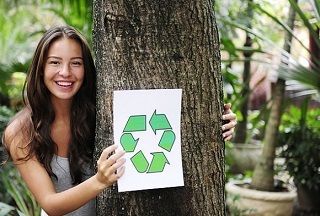Our Civilization’s Transition to Environmentalism

My house is made of used 2x4s and used fibreglas batts, and consumes about 25% of the energy of my neighbours’ conventionally built/operated homes. I have this amazing light (called a JOI) which can light a room enough to visit, play music, read, etc. for four hours from one tea light (which I can make from wax from a neighbour’s beehives).
That’s what we can do. Then I look around and see people effectively (but inefficiently) heating their (poorly insulated, poorly vapour barriered) homes with several kilowatts of incandescent bulbs.
I believe that we need to start increasing the cost of energy to consumers – slowly, but steadily – to encourage conservation measures now, before we run into true shortages. The potential social disruption of gas at $20/gallon or $5/litre will be horrific as people are suddenly no longer able to heat their houses or feed their families.
Although this idea appalls the libertarians amongst us, I’d be in favour of a “consumption tax” that was equal to the retail price of whatever energy is being consumed, then using the money to fix the huge inventory of crappy, inefficient buildings, to provide major discounts for those who want to buy hyper-efficient vehicles, to subsidize the growing of local, organic, sustainably-produced food, etc. In other words, to help all of us move to a far less energy intensive mode of life.
It will have to come – it will hurt less if we prepare for it early.
I just hope we (as a species) are able to make choices that take us there relatively gently.
Sorry to rant. Really enjoy your website and your essays.
Thanks for the note, and I’m glad you enjoy my writing.
Re: your comment: I just hope we (as a species) are able to make choices that take us there relatively gently. I can only say: Right on.
Your idea of a consumption tax is an attempt to internalize the externalities associated with our energy use. However, there are two problems with it: a) it’s hard to impose in a way that’s not regressive, i.e., over-taxing poor people, and b) it tends to make domestically manufactured goods less economically appealing than stuff from Asia, thus offshoring jobs and causing the products to be made using energy that’s even dirtier than our own.
We clearly need incentives to do the kind of things you’ve done; many people will take action only when there is an economic benefit to doing so. I’m reminded of the grim fact that 70% of Americans say they would pay more for environmentally friendly products, but only 2% actually behave accordingly.
Some say that it will take a cataclysm to unite humankind in an effort to clean up our life styles. Having said all this, I’m not so sure; a great deal of progress has been made in just the past few years, and we need to keep in mind that, in general, young people really understand the importance of not living like hogs. As they mature (and the old people who “don’t get it” die off), we’re bound to see a huge shift here.
Thanks again for the note.
